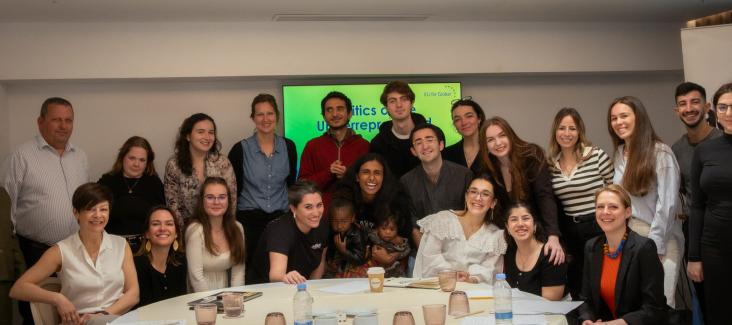Participants identified recurring issues, including:
- The lack of visibility and inclusion for racialised and disabled communities;
- The power of established political parties and the feeling of marginalisation for other groups;
- The limited reach of civic education among citizens and residents.
Rather than simply highlighting these challenges, participants worked together to generate constructive proposals to build stronger, more inclusive democratic communities. These included ideas such as mandatory civic education in schools, consultation and dialogue to ensure minority representation, and participatory budgeting initiatives at the local council level.
Transnational Citizens Panel – April 2025
The Transnational Citizens Panel, held between the 2–4 April 2025, brought together voices from across Europe. Experts, activists, and everyday people discussed how shared democratic challenges play out differently — and sometimes similarly — across national borders.
We extend our sincere thanks to the inspiring speakers and moderators who made the event an engaging and thought-provoking space. Prof. Maria Pisani kicked off the discussion on barriers to participation, framing it within youth, migration, and social justice lenses. The first panel, moderated by Prof. Pisani saw Dr. Marlene Farrugia, former MP, explored Malta’s flawed gender quota system and her experiences from within. Whilst, Allison Zammit from the Commission for the Rights of Persons with Disability emphasised structural exclusion of disabled persons and Racheal Ikulagba, from African Media Association Malta, addressed racialised narratives in political representation and the impossibility of participating in national and local elections.
The final day focused on sharing recommendations developed through group work. Rapporteurs from each group presented innovative proposals for inclusive democracy.
Tackling the Tough Topics
Both panels bravely confronted complex and uncomfortable issues, including:
- Freedom of Expression: How do we balance free speech with hate speech, especially online? How does free speech fit with democracy and politican participation in a climate of disinformation?
- Racism & Exclusion: What does real inclusion look like beyond symbolic gestures? How to counter the total ban of non-citizens in participating in elections when they are part of the community and social tapestry of a country?
- Social Media: Discussions explored both the opportunities and dangers of digital platforms—how they amplify marginalised voices, but also reinforce polarisation and misinformation.
The EU for Global project is funded by the European Union through the CERV programme.

